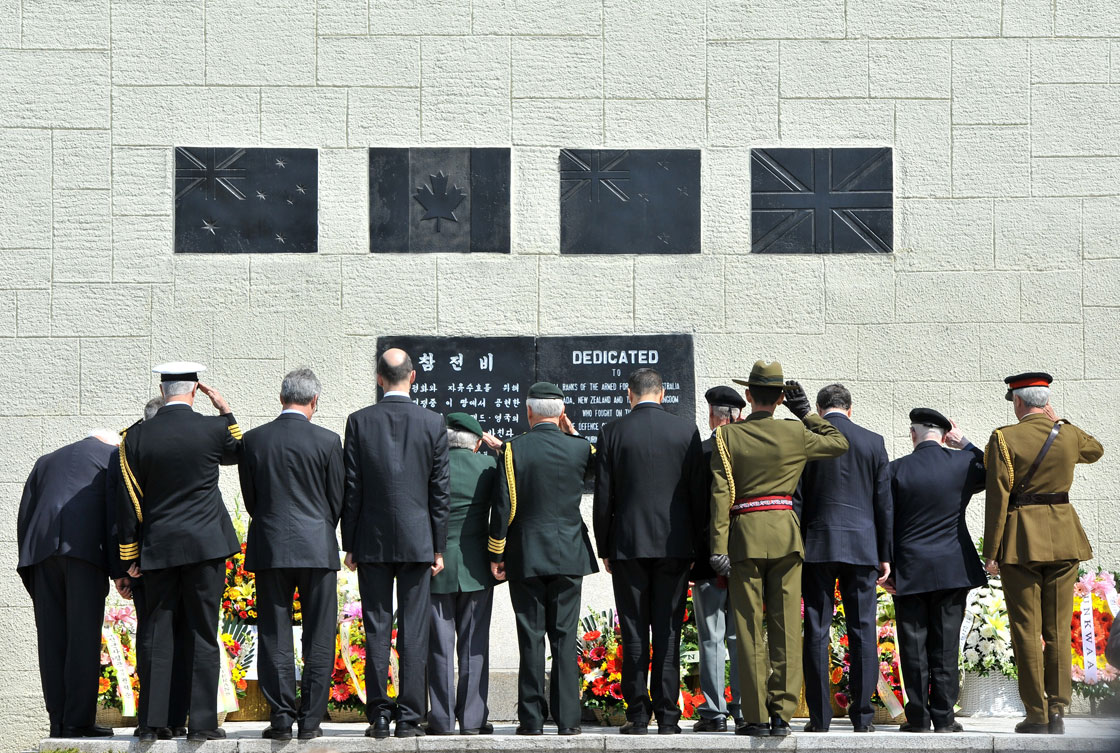GAPYEONG-GUN, Korea, Republic Of – Michael Ricketts has paid absolutely no attention to the sometimes earth-shaking events on the Korean peninsula since he chipped the mud of the place from his boots over six decades ago.

The world may gawk at the vitriol coming out of Pyongyang, but the trim, soft-spoken, 85-year-old former lance corporal couldn’t care less.
“When they’re talking back and forth about what (Kim Jong Un) is going to do, I never even turn the news on to listen. I know it’s there and that’s all,” said Ricketts, who spent the better part of his life after the Korean war as a cook at a hospital in a pastoral nook in Nova Scotia’s Annapolis Valley.
When his enlistment in the special force of Canadian volunteers raised for the Korean War ran out in 1952, he went home and closed the door on the unfinished war.
“I got out and forgot about it,” said Ricketts.
Although one of the first in line to join the 2nd Battalion, Princess Patricia’s Canadian Light Infantry in the summer of 1950, Ricketts did not embark with the unit when it first sailed for Korea.
He missed the landmark battle of Kapyong April 24-26, 1951, by one week, arriving as a replacement for one of the casualties.
At Kapyong, the Patricias defended the thundering hills around a hardscrabble farming town northeast of Seoul, despite being outnumbered eight to one. The outfit was awarded a U.S. presidential citation for turning back a communist Chinese offensive that threatened the South Korean capital.

Get breaking National news
The battle was commemorated Wednesday by Canadian, British, Australian and New Zealand veterans, as well as Korean officials who said they drew inspiration today from the example of yesterday.
“Not to make the sacrifice and dedication of the UN Korean war veterans in vain, the Republic of Korea commits itself to hold a firm line on the North and (to) maintain a strong security posture,” Park Sung Choon, South Korea’s minister of patriots and veterans affairs, told the veterans during one of several services.
The minister said he was impressed that Canadians chose to ignore recent North Korean threats of nuclear war and carried on with their pilgrimage, something that demonstrated “their deep love for Korea.”
Yet, Ricketts said he had to be talked into coming back.
He was, however, circumspect about his experience and apologetic about not being more forthcoming.
“When the time came, I wanted to get out of here and that was it,” he said. “I didn’t want nothing as a memory. I hope I’m not disappointing you.”
Ricketts and his unit spent most of their time clinging to tangled, scrub brush hillsides under constant night attacks and shelling.
When he went home, he not only left Korea behind, but also the men he served with, choosing not to keep in touch.
Over the years, Ricketts has wondered what became of each member of his section and has spent most of his time during the last few days chatting with other veterans in hopes of getting a lead on each of them.
In his pocket, he carries a dog-eared, brown, army service book.
Inside, in addition to his personal details, are the names of the men he served with as a member of B Company, 2nd PPCLI in a little corner of hell called Kapyong.
It was part of his job to keep track of their names and rifle serial numbers.
Time is fleeting, he said.
“The only thing left would be, I would like to see some of the guys and find out if they’re still alive or not. I never really thought about it before, because I kept busy. There was always something to do.”
His experience in Korea left him with a lot of thoughts “about life” and that there had to be another way to live other than war and killing.
“I think that’s what I accepted when I left here and I never thought about coming back to look at it, until these last three months,” he said.
“The kids said, ‘Dad you’d better go, you’ll never be able to do it again.’
“I think that’s the only reason I’ve (come) here, because if the kids hadn’t said something, I would have never came.”
So far, though, he hasn’t found any of his old comrades.





Comments